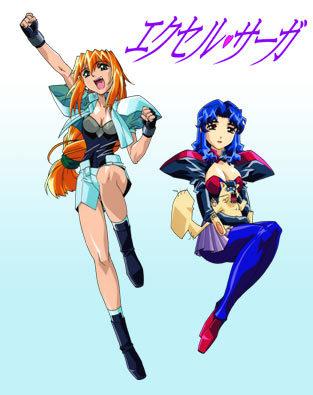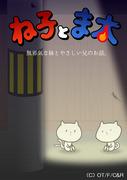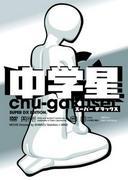Virtua Fighter Season 2: A thorough evaluation of the improved story and character depth

Virtua Fighter [Season 2] - A masterpiece that brings the world of fighting games to life in animeThe TV anime series "Virtua Fighter [Season 2]", based on Sega's popular fighting game "Virtua Fighter", aired on TV Tokyo from April 18 to June 27, 1996. This 11-episode series faithfully reproduces the world of the game, but its appeal lies in the story development and character development that only an anime can provide. ■ StoryThree years after the destruction of Koenkan, Akira learns that Sarah is being targeted by a mysterious man who calls himself Onimaru, and sets off on a journey once again with Sarah's brother Jackie and others. During the journey, he learns that a certain laboratory is planning to create the ultimate warrior. The plan is to develop a powerful robot called Dural, and Akira and his friends must fight to stop it. ■Explanation"Virtua Fighter [Season 2]" is a TV anime adaptation of the fighting game of the same name produced by Sega. It is set three years after the first season, and was broadcast in a different time slot after the end of the first season. "Virtua Fighter Mini," which includes a story mode that follows the content of this work, was released as a game software and was well received by fans. The anime continues the worldview of the game, but adds new characters and storylines, making it a more profound work. ■CastThe voice actors for the main characters are as follows:
These voice actors brought out the best in the characters' personalities and left a strong impression on viewers. Shinichiro Miki's Yuki Akira shines in his performance as the protagonist, combining strength and kindness. Naoko Matsui's Pai Chan captured the hearts of viewers with her portrayal of a young girl's purity and strength. ■ Main staffThe following staff members are involved in the production of this work:
In particular, director Hideki Tonokatsu, who is well-known for his action scenes, worked hard to recreate the realism of fighting games in the anime, while character designer Ryo Tanaka enhanced the visual appeal by skillfully incorporating game characters into the anime. ■ Main CharactersThe details of the main characters are as follows:
While these characters are based on the game's setting, they are further developed through episodes that are original to the anime. In particular, there were many touching scenes in the relationship between Akira and Sarah, and the love between Pai and Lau as a parent and child. ■SubtitleThe subtitles and broadcast dates for each episode are as follows:
As you can see from the subtitles of each episode, the story unfolds with tension, drawing viewers in. In particular, the showdown with Onimaru and the plan to strengthen Duralu are important episodes that mark the climax of the series. ■ Related works"Virtua Fighter [Season 2]" is connected to the following related works:
The first series depicts the story up until the destruction of Koenkan, while the second series is set in the world after that. By watching both series, you can enjoy the world of "Virtua Fighter" even more. ■ Theme songs and musicThe opening and ending themes are as follows: Opening Theme
Ending Theme
The opening theme "Ai ga Tarinai ze" features the powerful singing voice of Takenobu Mitsuyoshi, which lifts the spirits of viewers. Meanwhile, the ending theme features Akiko Seko's gentle singing voice, which enhances the story's aftertaste. These songs are important elements that enhance the atmosphere of the entire series. ■ Evaluation and recommendation"Virtua Fighter [Season 2]" has been highly praised as an anime adaptation of the world of fighting games. In particular, the quality of the action scenes and the character growth left a strong impression on viewers. It has also been supported by anime fans as well as game fans, becoming a work that is loved by a wide range of people. The recommended points are as follows:
This series is recommended not only for fans of fighting games, but also for those who like action anime. In particular, the episodes depicting friendship and family love will touch the hearts of viewers. Also, do not miss the story development throughout the series. Be sure to watch it together with the first season and enjoy the world of "Virtua Fighter". ■ Additional InformationWe will also touch on the production background and trivia of "Virtua Fighter [Season 2]". First of all, this series was created in response to the popularity of the Sega game "Virtua Fighter", and Suzuki Yutaka, the original creator, was deeply involved in faithfully recreating the worldview of the game. In addition, director Tonokatsu Hideki is well-known for directing action anime, and his direction contributed greatly to the success of this work. Furthermore, character designer Ryo Tanaka has enhanced the visual appeal of the anime by skillfully incorporating the game's characters. In particular, the designs of Akira and Sara have been made more appealing by retaining the image of the game while adding original elements to the anime. The music in this series is also not to be missed. Kaoru Ohori's music skillfully expresses the tension of the fighting scenes and the feelings of the characters, enhancing the emotions of the viewers. In particular, the opening theme "Ai ga Tarinai ze" and the ending theme are important elements that enhance the atmosphere of the entire series. Finally, "Virtua Fighter [Season 2]" is still loved by many fans as a work that successfully combined games and anime. Please rediscover the world of fighting games and the charm of anime through this work. |
>>: The appeal and reviews of "Hell Teacher Nube": a masterpiece of horror mystery anime
Recommend
"Autumn Leaves": Reevaluating the moving song of Minna-Uta
"Autumn Leaves": Autumn scenery depicte...
Netflix's Japanese comic-adapted animation "Uncle in Another World" releases new stills
As part of Netflix's Geek Week, the company h...
The appeal and evaluation of "The Battle of the Monkey and the Crab": A journey from the classics to the present
"Sarukanikassen" - The charm of anime b...
The second season of the TV animation "Moonlight Journey to Another World" will be aired in January next year
Today (October 25), MBS's official YouTube ch...
Shanghai Film Festival to screen "Akira," "Pacific Rim," "Warcraft," and "Birds of Prey"
Today (May 24), according to the news released by...
The famous manga "Ooku" by Hakusensha has been serialized for 16 years and the final volume will be released in February
Today, December 28, Hakusensha's classic mang...
The appeal and reviews of Misaki Chronicle: Divergence Eve: A profound story and the appeal of its characters
Misaki Chronicle: Divergence Eve Review and Recom...
2077 adaptation animation "Cyber Rogue" released a Trigger Club editing trailer
Late last night, the Netflix animation "Cybe...
Fafner in the Azure: Heaven and Earth - A moving review of an epic story and deep themes
"Fafner in the Azure: Heaven and Earth"...
The Japanese comics circle officially clarified the urban legend that Oda's family has an ATM and Araki is a vampire
According to foreign media reports today on Novem...
The latest trailer of the live-action movie "Whisper of the Heart" is released and will be released on October 14
The latest trailer of the live-action movie of Gh...
'Wonder Woman' Director Returns for 'Star Wars: Squadrons' Movie
Wonder Woman film director Patty Jenkins has conf...
Katsura Masakazu's live-action drama "Blade Runner" released its latest main art, to be aired on October 22
As a commemorative plan for the 40th anniversary ...
Chusuke's Repayment of Gratitude: A Thorough Review of the Moving Story and Character Depth
"Chusuke's Repayment of Gratitude":...
Evaluation and impressions of "The Prince of Tennis OVA National Tournament Arc Final"
Detailed review and recommendation of The Prince ...









